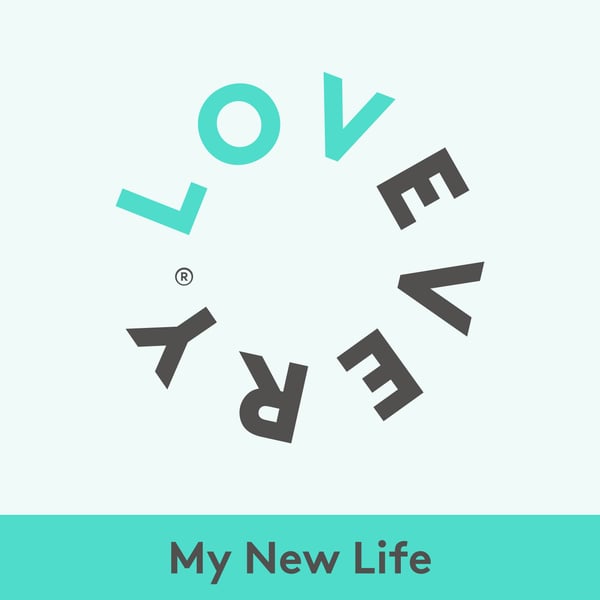Pacifiers: In or out?
My New Life
Kate Garlinge
4.7 • 654 Ratings
🗓️ 16 November 2022
⏱️ 16 minutes
🧾️ Download transcript
Summary
Pacifiers are so convenient… until they’re not. At some point, there can be concerns about developing teeth and interference with speech, and weaning a child off a pacifier can be challenging.
The American Academy of Pediatric Dentistry, the American Academy of Pediatrics, and speech and language therapists recommend starting that weaning process between 6 to 12 months, and weaning entirely before a child’s third birthday.
To guide us through that transition, My New Life host Jessica Rolph welcomes Dr. Amy Conrad to today’s episode. Dr. Amy is a mother to a 10-month-old, a Lovevery customer, and the host of the Ask Doctor Amy podcast.
Highlights:
[1:19] Dr. Amy talks about the pros and cons of pacifier use.
[3:42] What red flags should parents be looking for with regard to pacifier use?
[5:52] Dr. Amy shares her thoughts about the paci fairy approach.
[7:25] If a child is using a pacifier all through the day and at night, is it advisable to wean them from the pacifier during awake times, and then eventually extend that to nap-time and finally bedtime?
[8:38] Can we revert to pacifiers when a child gets sick or during a trip?
[9:30] What about gradually shortening the tips of the pacifier?
[10:40] How much of a concern is tooth decay, and how and when should we wean our child from the bottle?
[11:08] What are some signs that your baby is ready for a drinking cup?
[12:31] How and when to use sippy cups, open cups, and bottles?
[13:52] Jessica shares her takeaways from the conversation with Dr. Amy.
Mentioned in this episode:
Brought to you by Lovevery.com
Receive weekly emails about your child’s development, and stay in the know about new play essentials, promos, and more by signing up at Lovevery.com
Follow Lovevery and Jessica Rolph on Instagram.
Transcript
Click on a timestamp to play from that location
| 0:00.0 | Welcome to My New Life, a Love Every podcast. |
| 0:12.2 | In this season of the podcast, we take a look at transitions. |
| 0:16.0 | From diaper to potty, crib to bed, saying goodbye to pacifiers, |
| 0:20.1 | we're here to support you through all these |
| 0:22.9 | tricky transitions and more, even the ones that we as parents resist. |
| 0:27.8 | I'm your host, Jessica Rolf. |
| 0:33.3 | Pacifiers are so convenient until they're not. |
| 0:37.0 | At some point, there can be concerns about developing |
| 0:39.2 | teeth and interference with speech. Weaning a child off a pacifier can be a challenge. The American |
| 0:45.5 | Academy of Pediatric Dentistry, the American Academy of Pediatrics, and Speech and Language |
| 0:50.1 | Therapists recommend starting that weaning process between six to 12 months and weaning |
| 0:55.0 | completely before a child's third birthday. Here to guide us through that transition is Dr. Amy Conrad, |
| 1:01.7 | mother to a 10-month-old, love every customer, and host of the Ask Dr. Amy podcast. So without |
| 1:08.2 | further delay, I bring you Dr. Amy. Thank you, Jessica. I'm so excited to be here. |
| 1:14.3 | Oh, it's so great to have you. So I'd love to hear from your expert perspective. What is your |
| 1:20.3 | position on pacifier use? Can we talk about the pros and cons? For a newborn, the first time a parent |
| 1:26.5 | hears about the pacifier, often it gets brought up in the |
| 1:30.0 | context of breastfeeding. And there's a lot of fear, I feel like, these days, because some |
| 1:35.7 | people think that it can affect breastfeeding in a negative way. There can be a warning that |
| 1:40.7 | pacifier use can somehow confuse the baby. Now, in my experience for my own son |
| 1:47.4 | and also for my patients, I don't actually find this to be an issue. We don't have to be |
| 1:52.5 | afraid that it's going to stop breastfeeding. Breastfeeding is a wonderful process and |
... |
Please login to see the full transcript.
Disclaimer: The podcast and artwork embedded on this page are from Kate Garlinge, and are the property of its owner and not affiliated with or endorsed by Tapesearch.
Generated transcripts are the property of Kate Garlinge and are distributed freely under the Fair Use doctrine. Transcripts generated by Tapesearch are not guaranteed to be accurate.
Copyright © Tapesearch 2025.

